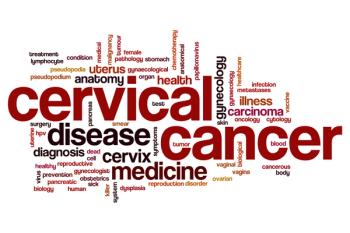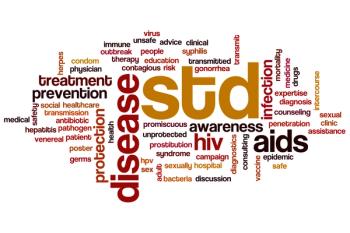
Women with inflammatory bowel disease (IBD) may be at increased risk of adverse pregnancy outcomes, according to new research from Alimentary Pharmacology & Therapeutics.
a BELS-certified medical writer and editor, and an editorial consultant for Contemporary OB/GYN

Women with inflammatory bowel disease (IBD) may be at increased risk of adverse pregnancy outcomes, according to new research from Alimentary Pharmacology & Therapeutics.

Experience in more than a quarter million women shows no significant association between use of powder in the genital area and ovarian cancer.

From disability and miscarriage risk to diets during pregnancy, these are Contemporary OB/GYN's selections for five of the most noteworthy obstetric studies that were published in December 2019.

A new study of nearly a quarter million women suggests that smoking during pregnancy increases risk of gestational diabetes mellitus (GDM).

New research shows that women with disabilities are more likely to suffer a miscarriage but are also more likely to receive preventive services.

A new systematic review suggests that before and during pregnancy, women may not be following national and international dietary guidelines from major organizations.

Published in JAMA Network Open, a new study offers surprising results about plasma transfusion effectiveness for women with PPH.

A study published in BMJ suggests that inducing labor at no later than 41 weeks could be one of the few interventions that reduce stillbirths.

Women with eating disorders-present or past-are at increased risk of adverse pregnancy and neonatal outcomes, according to research from JAMA Psychiatry.

According to research published in Menopause, vaginal atrophy-a treatable condition-appears to be the most impactful factor for perimenopausal women and declining sexual function.

Published in JAMA Network Open, results from the first US trial of home-based sampling for human papillomavirus show that mailing kits to underscreened women could increase cervical cancer screening.

Ranging from sexual function among cancer patients to how lifetime estrogen exposure affects late-life cognition to state strategies to address opioid use, these were Contemporary OB/GYN's selections for the top gynecologic studies published in October 2019.

In adolescents, detection of a cervical human papillomavirus (HPV) infection may signal an increased risk of detection of the virus in the oral cavity, but incidence declines after vaccination, according to research from JAMA Network Open.

Results of new research from American Journal and Obstetrics & Gynecology suggest that naltrexone may be an option for pregnant women who use opioids.

A new analysis of data from the Women’s Health Initiative (WHI) suggests that older women who do regular physical activity-even just walking-may have a lower risk of fracture than their peers who are sedentary.

These are Contemporary OB/GYN's selections for five of the most noteworthy obstetric-focused studies that were published in October 2019.

The agency issued the guidance in response to concerns that some women are not receiving and/or understanding information about the risks and benefits of the devices.

A new analysis of electronic health record (HER) data suggests that identifying and treating anemia in women who present for vaginal delivery may help lower risk of postpartum anemia.

Results of a new study suggest that the condition also may be associated with a long-term risk of cardiovascular disease (CVD) and death.

A new qualitative review from the Cochrane Collaborative provides insights on what the end users like and don’t like about this form of communication.

A new report from the Centers for Disease Control and Prevention shows an alarming rise in incidence of sexual transmitted diseases in the United States.

Risk of stillbirth is known to be elevated in women who go to sleep supine late in pregnancy, but a new study suggests that may not be the only associated risk.

A new Swedish study indicates that the condition may be associated with higher risk of teenage birth, which could have negative health consequences for both the mothers and their babies.

These are Contemporary OB/GYN's selections for five of the most noteworthy gynecologic-focused studies that were published in September 2019.

In a first-of-its-kind study, Canadian researchers explored how antidepressants and duration of use affects gestational diabetes mellitus risk.

A new report from the Centers for Disease Control and Prevention compared the outcomes of mothers and their babies in Appalachia and the Delta with those of their counterparts elsewhere in the United States.

From research on whether high-risk pregnancies are receiving the proper level of care to a 40-year study on hypertension in pregnancy, these are five of the most noteworthy obstetric-focused studies published in September 2019.

State-level restrictions on reproductive services led to shuttering of nearly 100 women’s health clinics in the United States over a 4-year period.

Researchers have undertaken a systematic review of how sexual minority women (SMW) experience health care in the UK and the results suggest a need for explicit and consistent education for health care professionals there.

A cohort study of more than a half million individuals suggests that maternal anemia in early pregnancy may have a negative impact on a fetus’s neurodevelopment.